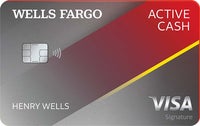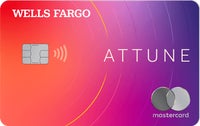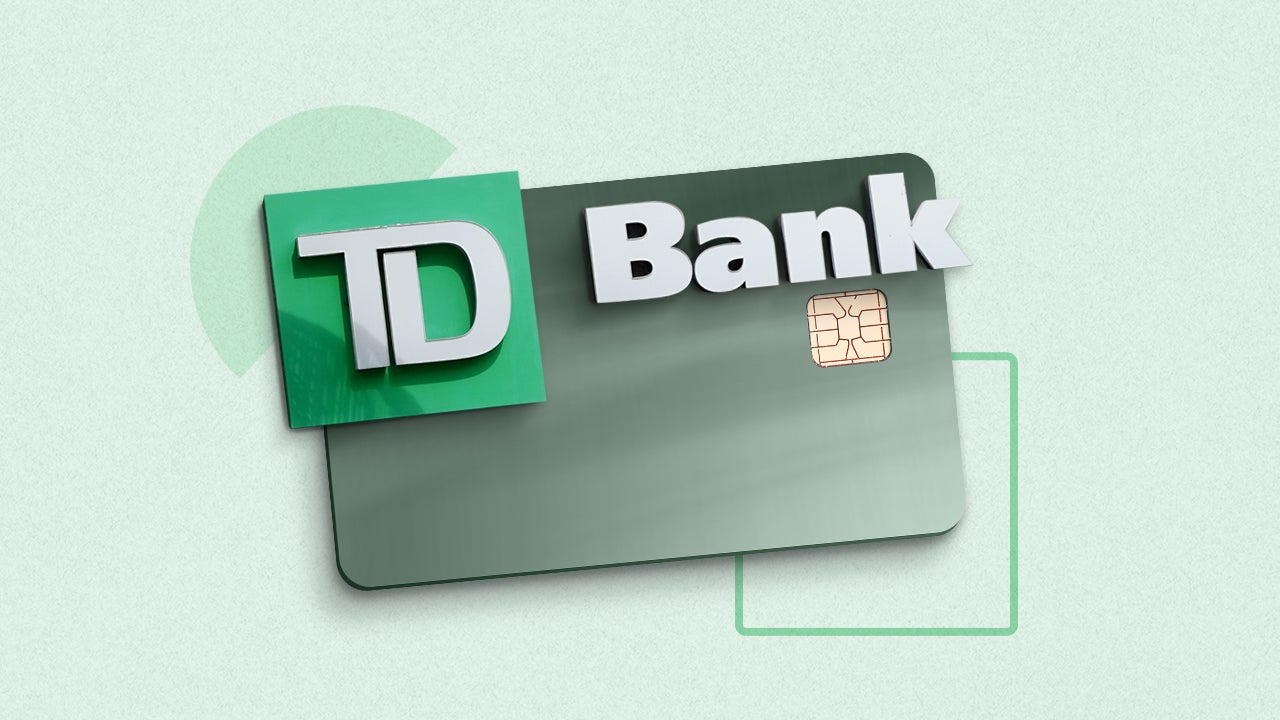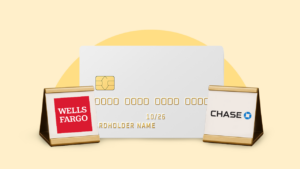The Wells Fargo Trifecta: What You Need To Know And How To Maximize It



Key Takeaways
- The Wells Fargo credit card trifecta includes the Wells Fargo Active Cash® Card, Wells Fargo Attune℠ Card* and the Wells Fargo Autograph℠ Card or Wells Fargo Autograph Journey℠ Card
- You don’t need all three cards to get the most of your credit card rewards. Two cards that fit your spending needs can be more manageable and just as effective.
- The Wells Fargo trifecta is best for experienced rewards maximizers.
- You’ll need good to excellent credit and a solid card management strategy to make the most of this credit card combination.
Wells Fargo has spent the last several years revamping its credit card offerings. And now, with the June 5 release of the Wells Fargo Attune credit card, has formed a card combo to challenge other major card issuers. That’s right — Wells Fargo finally has a credit card trifecta.
What’s a credit card trifecta, you ask? It’s when a credit card company has three cards that work together allowing you to maximize your rewards and combine them for more impressive redemptions. As with any credit card trifecta, there are complexities you’ll need to understand and specific ways to get the most from the Wells Fargo version.
The appeal of credit card trifectas
Rewards seekers can already take advantage of credit card trifectas from Chase, American Express and other card issuers to get the most from their credit card rewards strategies. By carefully analyzing the rewards structure and planning their purchases around it, trifecta cardholders stand to gain more than passive card users.
The entire goal behind using a credit card trifecta is to pool your rewards together from the three cards — often so you can redeem those rewards for travel. If you attempted to do that with three cards from different issuers, you’d have to jump through quite a few hoops and you’re likely to run into roadblocks. As such, trifecta users are typically looking for a few factors:
- Ease of combining rewards
- Benefits that offset the annual fees
- High-value welcome bonuses
- Transferability of rewards to airline and hotel partners
This makes it easier to enact a rewards strategy and make use of those rewards.
What is the Wells Fargo Trifecta?
Think of a credit card trifecta like building a team of superheroes — each one has a different super power and when you put them together, they’re an unstoppable force. Wells Fargo designed its trifecta with these three cards:
- Wells Fargo Attune
- Wells Fargo Active Cash
- Wells Fargo Autograph Journey or the Wells Fargo Autograph
With a credit card trifecta you can combine rewards, and use each card’s unique strengths to maximize your rewards strategy. Using this trio of credit cards from Wells Fargo, means you could be earning top rewards on a wide range of purchases since each card has a different rewards structure. Plus, unlike other trifectas, you have the option to rake in rewards without paying an annual fee.

Wells Fargo Active Cash® Card
Wells Fargo Autograph or Wells Fargo Autograph Journey
This is the travel card of the trifecta. You can choose between the elevated rewards and an annual fee of the Autograph Journey or standard rewards and no annual fee of the Autograph. Considering that the other two cards in the Wells Fargo trifecta have foreign currency conversion fees, you’ll want to use one of the Autograph cards instead when you’re planning foreign travel since both versions of the card are free of foreign currency conversion fees. For a clearer distinction between the two card options, let’s compare them side-by-side.
| Benefits, rewards and fees | Wells Fargo Autograph® Card | Wells Fargo Autograph Journey℠ Card |
| Annual fee | $0 | $95 |
| Welcome bonus | Earn 20,000 bonus points when you spend $1,000 in purchases in the first 3 months - that's a $200 cash redemption value. | Earn 60,000 bonus points when you spend $4,000 in purchases in the first 3 months – that’s $600 toward your next trip. |
| Statement credits | none | $50 annual statement credit with a minimum $50 airline purchase |
| Rewards structure | Unlimited 3X points on Restaurants Gas Travel Streaming services TransitPhone plans 1X points on all other purchases. |
Unlimited 5X points on hotels 4X points on airlines 3X points on restaurants and other travel (timeshare, vehicle rental, cruise lines, travel agencies, discount travel sites, campgrounds) 1X points on all other purchases |
| Cellphone protection | Up to $600 per claim of cell phone protection. Two claims per year. | Up to $1,000 per claim of cell phone protection. Two claims per year. |
Even with the reasonable annual fee of $95, the Autograph Journey allows you to offset over half of that cost with its $50 annual statement credit for airline purchases. It also has a welcome bonus of 60,000 bonus points when you spend $4,000 in the first three months. That’s a cash value of $600 towards travel.
The Autograph Journey also carries a few premium benefits card holders might find useful:
- Up to $3,000 of lost baggage reimbursement
- up to $15,000 in trip cancellation and interruption protection
- Travel accident insurance of up to $1,000,000
Since the Autograph Journey highly rewards airline and hotel purchases, it’s perfect for frequent travelers. However, if you’re more of a staycationer and prefer being rewarded for gas and transit instead, the Autograph card might be the better choice.

Attune® Card
The pros and cons of Wells Fargo’s trifecta
Getting all three cards in the Wells Fargo trifecta is a big commitment. So before you make it official, let’s think through the advantages and drawbacks.

Pros
- No annual fee credit card trifecta option
- Annual fee of $95 for Autograph Journey is offset by a $50 annual travel credit.
- Rewards are easily pooled together, even on the mobile app.
- Expanded rewards redemption with transfer partners.
- No need to book travel through a portal.
- Transfer travel rewards at a 1:2 ratio with Choice Privileges hotels.
- Extensive rewards categories across the three cards.
- Uncapped rewards on all three cards.

Cons
- Foreign currency conversion fees on the Active Cash and Attune
- Fewer transfer partners compared to Chase and Amex
- 48 month restriction between welcome offers.
- Could be challenging to balance three cards.
- Must wait at least 6 months between applications.
Why you should consider the Wells Fargo trifecta
The Wells Fargo trifecta covers an extensive range of bonus category purchases. From standard rewards categories like gas and travel on the Autograph Journey, or niche categories like your weekly trip to the plant shop with the Attune. Either way, you’re earning the top rewards from each card for purchases you’re already making.
And compared to travel cards from other trifectas, you may find more versatility with the Autograph cards.
“We have real value in the Autograph Journey card and it’s flexible,” Phillips says. “We don’t make you book travel through our portal, we allow you to get accelerated points anywhere you choose to book your travel, which is a real competitive edge for us.”
You’ll also find that transferring rewards to Choice Privileges Hotels stretches your travel rewards further. Instead of the 1:1 ratio with Wells Fargo’s airline transfer partners, you’d get a transfer ratio of 1:2 instead.
Why you might skip the Wells Fargo trifecta
The trifecta could be part of a travel rewards strategy, but that doesn’t mean every card is ideal for taking along on your travels. Both of the cash back cards within the trifecta charge a 3 percent foreign currency conversion fee. You can avoid this fee by using the Autograph or Autograph journey instead as those are foreign transaction conversion fee free, but it’s something to think about.
Hoping to snag all three welcome offers? Remember you’ll need to wait six months between applications and 48 months if you’ve earned a welcome offer in the past. The terms and conditions for each of these cards states,
“You may not be eligible for introductory annual percentage rates, fees and/or rewards bonus offers if you have a [Wells Fargo credit card name] or opened one within the last 48 months from the date of this application.”
To make the most of it, go for the Autograph Journey first. It currently has the largest welcome offer of 60,000 bonus points (valued at $600) when you spend $4,000 in the first three months.
Lastly, waiting six months between applications might not ruffle your feathers if you already have one of these cards. If you’re starting from scratch, however, you may have to wait at least 18 months to complete your collection.
You may want to wait at least six months between credit card applications anyway to keep your credit score from taking a huge hit.
Who is the Wells Fargo trifecta for?
When Phillps became the chief marketing officer for consumer lending at Wells Fargo in 2020, her sole mission was to “transform the credit card business from soup to nuts” as she puts it. She and her team were the masterminds behind Wells Fargo’s steady release of new credit cards over the past several years. The Wells Fargo trifecta is for everyone, according to Phillips, but it’s specifically useful for the type of cardholder that industry experts refer to as “maximizers.”
“If you think about customers who will get multi products or have, like, the one-two punch, those are really thoughtful users of credit cards,” Phillips says. “They’re really thinking about where they can apply different cards to different purchases to really maximize those rewards and we call them maximizers in the industry.”
Sorry, credit card newbies — this one isn’t for you. Managing three credit cards and their respective rewards programs is a time-consuming pursuit even for seasoned credit card users. Plus, you’ll need a FICO score that reflects your credit experience with a minimum suggested score of 670 for these cards. The Wells Fargo trifecta might be for you if you fall in one of these categories:
- Cash back lovers
- Annual fee avoiders
- Planet-friendly travelers
- Hobby enthusiasts
- Experienced rewards maximizers
When you want the trifecta benefits without the high annual fees you’ll find with other card issuers, Wells Fargo might be the one for you. Since there’s an option to get this trifecta with no annual fee, it makes it significantly more affordable. Even if you chose to get the $95 annual fee Autograph Journey card as part of your trifecta build out, you’d still spend significantly less than the competition.
Tips on maximizing the Wells Fargo trifecta
Let’s be real — no one’s getting three credit cards for basic rewards. You’re going this route because you want to earn the best rewards and get the most from your card set up. So here’s how to make that happen.
Get the largest welcome bonus first
Before you complete an application, think about which specific cards you want from this line up and which one has the highest welcome bonus. Since you’re limited to one application every six months, you may want to apply for the one with the largest new cardholder offer first. Out of the four cards that could be part of your trifecta, the Autograph Journey has the largest welcome bonus with 60,000 bonus points when you spend $4,000 in the first three months.
Redeem rewards for travel
Combining your rewards is super easy with Wells Fargo since you can pool your rewards together from the app or online. However, you’ll get the most value for your rewards when you use them to pay for travel. Redeeming your rewards for airfare gets you a 1:1 redemption ratio. However, when you transfer your points to Choice Privileges Hotels, your rewards go a bit further with a 1:2 transfer ratio.
Pay your cellphone bill
An underrated way to maximize your card benefits is to pay your phone bill from one of your Wells Fargo credit cards. That qualifies you to use the cellphone protection if your phone gets damaged, lost or stolen (terms and deductibles apply).
Target the highest earning categories
Get strategic with your spending and make the most of the higher earning categories. For the Attune card, that might look like using it for your monthly spa treatment, EV charging and the occasional thrift store visit to earn 4 percent cash back. With the Autograph Journey card, that might look like focusing most of your spending on hotels and airlines for the 5X and 4X points respectively. The purchases that don’t fit the higher spending categories can go on the Active Cash so you’ll earn a flat 2 percent cash rewards.
The bottom line
The Wells Fargo trifecta has a tantalizing suite of credit card rewards and benefits that’s built for experienced cardholders and rewards maximizers. This line-up of cards even puts Wells Fargo in direct competition with major players like Chase and American Express. However, getting all three cards isn’t for everyone. Whether you decide to go for the full trifecta or a dynamic duo, you’ll want to plot your moves carefully to get the most from your cards. Go for the highest welcome offer first, redeem your rewards for travel and target your spending towards the higher earning categories to get the most from this trifecta.
The information about the Wells Fargo Attune℠ Card has been collected independently by Bankrate.com. The card details have not been reviewed or approved by the card issuer.
Why we ask for feedback Your feedback helps us improve our content and services. It takes less than a minute to complete.
Your responses are anonymous and will only be used for improving our website.




